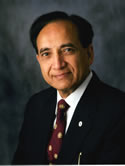Craniofacial surgery for malignant skull base tumors: Report of an international collaborative study Journal Article
| Authors: | Patel, S. G.; Singh, B.; Polluri, A.; Bridger, P. G.; Cantu, G.; Cheesman, A. D.; DeSa, G. M.; Donald, P.; Fliss, D.; Gullane, P.; Janecka, I.; Kamata, S. E.; Kowalski, L. P.; Kraus, D. H.; Levine, P. A.; Dos Santos, L. R. M.; Pradhan, S.; Schramm, V.; Snyderman, C.; Wei, W. I.; Shah, J. P. |
| Article Title: | Craniofacial surgery for malignant skull base tumors: Report of an international collaborative study |
| Abstract: | BACKGROUND. Malignant tumors of the skull base are rare. Therefore, no single center treats enough patients to accumulate significant numbers for meaningful analysis of outcomes after craniofacial surgery (CFS). The current report was based on a large cohort that was analyzed retrospectively by an International Collaborative Study Group. METHODS. One thousand three hundred seven patients who underwent CFS in 17 institutions were analyzable for outcome. The median age was 54 years (range, 1-98 years). Definitive treatment prior to CFS had been administered in 59% of patients and included radiotherapy in 367 patients (28%), chemotherapy in 151 patients (12%), and surgery in 523 patients (40%). The majority of tumors (87%) involved the anterior cranial fossa. Squamous cell carcinoma (29%) and adenocarcinoma (16%) were the most common histologic types. The margins of surgical resection were reported close/ positive in 412 patients (32%). Adjuvant postoperative radiotherapy was received by 510 patients (39%), and chemotherapy was received by 57 patients (4%). RESULTS. Postoperative complications were reported in 433 patients (33%), with local wound complications the most common (18%). The postoperative mortality rate was 4%. With a median follow-up of 25 months, the 5-year overall, disease-specific, and recurrence-free survival rates were 54%, 60%, and 53%, respectively. The histology of the primary tumor, its intracranial extent, and the status of surgical margins were independent predictors of overall, disease-specific, and recurrence-free survival on multivariate analysis. CONCLUSIONS. CFS is a safe and effective treatment option for patients with malignant tumors of the skull base. The histology of the primary tumor, its intracranial extent, and the status of surgical margins are independent determinants of outcome. © 2003 American Cancel' Society. |
| Keywords: | adolescent; adult; cancer chemotherapy; child; treatment outcome; aged; aged, 80 and over; child, preschool; middle aged; surgical technique; survival rate; retrospective studies; major clinical study; histopathology; cancer recurrence; squamous cell carcinoma; cancer radiotherapy; combined modality therapy; follow up; antineoplastic agent; adenocarcinoma; cohort analysis; retrospective study; postoperative complication; postoperative complications; wound healing; infant; outcomes research; surgical mortality; multivariate analysis; skull base neoplasms; craniofacial surgery; skull base tumor; international cooperation; intracranial tumor; disease activity; facial bones; skull; skull base neoplasms/surgery; humans; human; male; female; priority journal; article; skull base neoplasms/mortality |
| Journal Title: | Cancer |
| Volume: | 98 |
| Issue: | 6 |
| ISSN: | 0008-543X |
| Publisher: | Wiley Blackwell |
| Date Published: | 2003-09-15 |
| Start Page: | 1179 |
| End Page: | 1187 |
| Language: | English |
| DOI: | 10.1002/cncr.11630 |
| PUBMED: | 12973841 |
| PROVIDER: | scopus |
| DOI/URL: | |
| Notes: | Export Date: 12 September 2014 -- Source: Scopus |
Altmetric
Citation Impact
BMJ Impact Analytics
Related MSK Work






